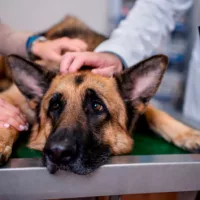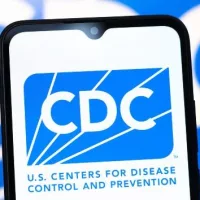 iStock/Thinkstock(NEW YORK) — With medical marijuana now legal in 23 states, and recreational use permitted in four states as well as Washington, D.C., a burgeoning cannabis industry is blooming in America.
iStock/Thinkstock(NEW YORK) — With medical marijuana now legal in 23 states, and recreational use permitted in four states as well as Washington, D.C., a burgeoning cannabis industry is blooming in America.
The latest crop of potentially lucrative products? Pot for pets.
Biscuits, edibles and capsules containing cannabis compounds are being marketed to owners of ailing and elderly animals as natural pain relievers and anti-inflammatory supplements. But these products aren’t getting Fido stoned, claim proponents.
“The cannabis plant has many compounds in it,” said Matthew J. Cote, brand manager at San Francisco bay area edibles manufacturer Auntie Dolores, which launched its pet-focused line Treatibles in 2014. “Most people breed cannabis for the euphoric experience of THC. But they’ve been overlooking cannabidiol — commonly known as CBD — which is non-psychoactive.”
Citing studies in Israel that suggest CBD can be used to treat epilepsy, inflammation and pain relief, Auntie Dolores decided to infuse dog biscuits as animals suffer from some of those same ailments, said Cote.
Sold online for $22 per bag of 40 treats, Treatibles contain 1 milligram of CBD per treat. The company’s recommended dose is 1 milligram per 20-pound animal.
“What we’ve seen is that some of these dogs respond very rapidly,” said Cote. “One woman from Fort Bragg was ready to put down her dog due to how sick and in pain he was, but the day before he was scheduled to go under, she administered our treats and just like that the dog was up, walking around and acting normally again.”
Canna Companion, a Sultan, Washington-based producer of pet capsules that combine strains of dried, powdered hemp, received similar success stories and testimonials from its customers.
“Just want to say how much this product has helped my animals,” writes one pet owner on the brand’s Facebook page. “Bug, [my] 18-year-old cat, is playing, sleeping next to me at night, being curious and exploring…her back pain is nearly gone. I can pet her all over and she purrs! She has NEVER, until being on hemp, enjoyed being petted.”
Co-owner of Canna Companion and licensed veterinarian Dr. Sarah Brandon, developed her product after a decade of trials and formula refinements with her own pets and strays.
But that didn’t prevent the U.S. Food and Drug Administration from sending her a notice last month, warning that the capsules were an “unapproved new animal drug and your marketing of it violates the [Federal Food, Drug, and Cosmetic] Act.”
Even in states where medical marijuana is legal, veterinarians are not empowered to prescribe cannabis products to pets. Similarly, producers of hemp-based edibles, treats and capsules are limited in how they may advertise the products’ purported benefits.
“We initially marketed our product using medical terminology,” said Brandon. “[My husband] and I are both licensed veterinarians and were trained to use such verbiage…Our intent was to market an over the counter supplement which would help improve the quality of life of dogs and cats. Since that letter, we have joined NASC and taken great steps to correct the issues brought to our attention.”
Part of the reason the FDA has been taking more interest in such cases is that there is insufficient research on cannabis products for pets in the U.S.
Dr. Tina Wismer, medical director of the ASPCA Animal Poison Control Center, has witnessed myriad instances over the years when animals have consumed too much of their owners’ stash.
“We get quite a few marijuana calls at Poison Control,” said Wismer. “Cats like the plant material better, whereas dogs like to get into the edibles. Depending on how much they get into will determine how aggressive we need to be.”
“Most of the time they’re wobbly like they’re drunk, they dribble urine,” she said. “But 25% of them become extremely agitated, which certainly is not something I would want to put my elderly pet through. In fact, dogs that get into the really large amounts of THC, often need to be put on fluids and have their heart rate monitored.”
Still, Wismer did not dispute the potential for monitored consumption of such treats and capsules in the future.
“Most of these treats have very low levels of CBD, so they are much safer [than when a cat or dog accidentally eats something of the human’s]. It looks like these certainly could be helpful products in some cases, but right now we don’t have enough information,” Wismer said. “Whether it’s THC or other cannabinoids, the problem is we have no therapeutic dose. We don’t know, ‘are you under-dosing your animal or overdosing your animal?’ These are the things we need to determine.”
Follow @ABCNewsRadio
Copyright © 2015, ABC Radio. All rights reserved.















